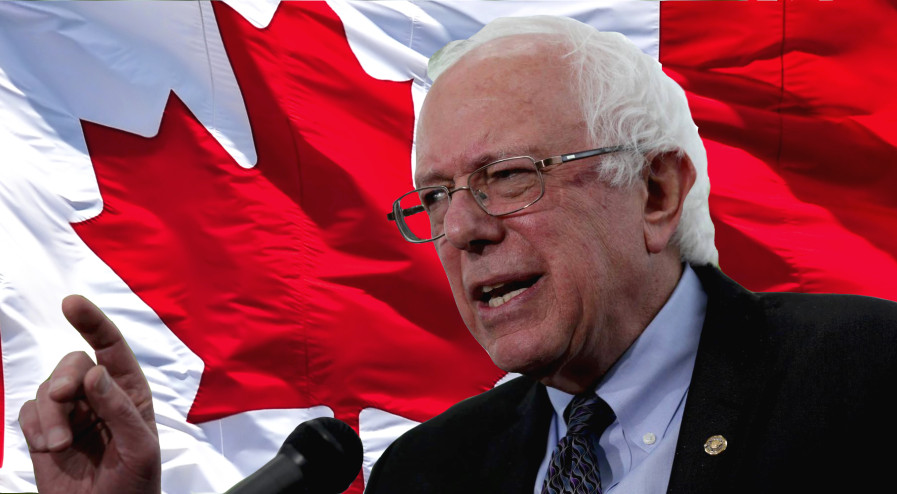The New Democratic Party and its predecessor, the Cooperative Commonwealth Federation, have always had manifestos and other defining documents. From the Calgary Program to Regina Manifesto to Winnipeg Declaration to NDP constitutional preamble to Waffle Manifesto, to New Regina Manifesto, and even to the recent constitutional amendments, the party has been Canada's most eager to encapsulate its views in a single, overarching analysis.
But in the here and now, the next chapter might well lie with the Leap Manifesto.
Previous CCF-NDP declarations are varied, but themes emerge from all iterations, excepting the most recent reforms. They all, for instance, show a distrust of capitalist modes of ownership, production, and distribution. While this was most intense in earlier documents, which emphasized the party never resting until capitalism had been eradicated, even later pieces emphasized the immorality of capitalism, and the need to supersede it with commitments to end poverty and market-centred economics.
The major divergence came in 2013, when the NDP changed its constitutional preamble to de-emphasize social ownership, production for use, and the abolition of poverty, signalling that the NDP was now a largely pro-capitalist party.
But with the Leap Manifesto, the NDP's left might well see a re-invigoration, because even though the document is external to the party, it was designed by many associated with the NDP, has garnered over 33,000 signatures, and has been endorsed by multiple riding associations. Its signatories include party titans, labour leaders, environmentalists, clergy-people, and artists, all of national or international renown. It includes former Ontario NDP leader Stephen Lewis, Canadian Labour Congress President Hassan Yussuff, world-class philosopher Charles Taylor, and prominent socialist author Naomi Klein. But more important than the who is the what of the Leap.
Like previous CCF-NDP manifestos, the Leap emphasizes the injustice and inequality that scars Canadian society. It also notes the centrality of human rights, civil liberties, and democracy to a progressive society. It argues, in essence, that both political and economic equality are part of a just society, and that incremental changes are no longer viable to reach these goals, hence the name Leap.
But a partial departure from the previous NDP documents is the focus on indigenous rights and environmental justice, which while not excluded from previous iterations, was subjugated to a more traditional language of socialism. Here, indigenous rights are not one among many, but are the precondition for the manifesto itself.
Likewise, environmental concerns take centre stage, arguing that traditional socialism is meaningless if publicly-controlled industries are detrimental to the future of humanity. While past CCF-NDPers would emphasize the public control of petroleum-based industries, the Leap calls for public control with the expressed interest of ending the use of carbon energy.
In this, the Leap manifesto rejects a capitalist approach, including the increasingly en vogue green capitalism. Rather, it offers energy democracy as the path towards a just and sustainable economy. This is a third way between the autocratic energy politics of today, and the state-centred models that past CCF-NDP platforms championed. Here, community ownership of energy production and distribution is vital, especially for indigenous communities.
Also a radical inclusion in the Leap is the move away from the market-centred allocation of resources and priorities, which privileges social benefit over profit motives. Most important here is the recognition that the dichotomy we have set between public and private property is in need of a re-conception, which is characterized by guaranteeing an annual income, and by acknowledging that historic levels of wealth in our society can be used to promote the Leap agenda. As the manifesto notes, "public scarcity in times of unprecedented private wealth is a manufactured crisis, designed to extinguish our dreams before they have a chance to be born."
This is all predicated on Canadian autonomy in terms of its international economic destiny, because trade deals that inhibit the economy from being driven by the democratic priorities of Canadians is not the sort that sets the conditions for the Leap.
In my view, I feel this Manifesto offers a strong basis upon which to build a democratic socialist Canada. While its informal language and lack of direct mention of socialism sets it apart from previous CCF-NDP declarations, it still captures what the democratic socialist movements' founders have desired for more than a century, though updated for 21st century sensibilities and realities.
The NDP with the Leap has the opportunity to reverse its rightward course with a mix of both new and old ideas. In the Leap Manifesto, the party finds traditional clarion calls towards economic equality and democracy, with modern understandings of the environment and settler-indigenous relationships. I support the process by which riding associations are choosing to Leap forward, and I feel that this document, at least in part, will play an influential role in the NDP's soul-searching process over the coming months and years.
Capitalism, based on its anti-democratic notions of profit and private property, must go, and while the Leap doesn't explicitly call for a socialist Canada as CCF-NDPers-gone-by have, it nevertheless offers a road map to start the journey.

